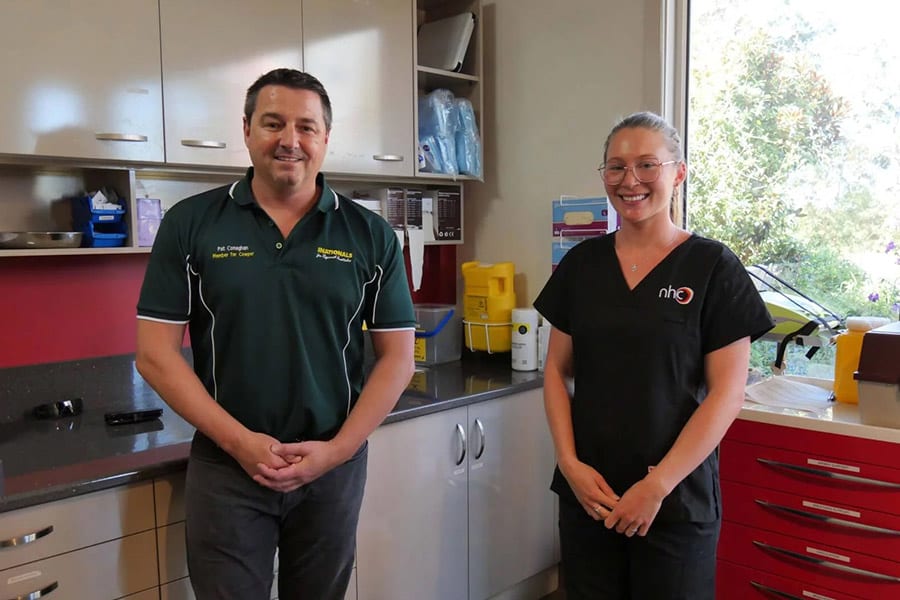It’s Nursing in the Community Week and this year’s theme highlights how nurses can support people to stay safe at home.
Federal Member for Cowper Pat Conaghan caught up with general practice nurse Isabella Besmehn of Nambucca Healthcare Centre to find out more about the service she provides to the local community.
“There are more than 40,000 nurses working in regional and rural areas across Australia with over 3,000 nurses working in primary health care on the North Coast,” Mr Conaghan said.
“This includes nurses working in residential aged care, specialist services and general practice like Ms Besmehn.
“Ms Besmehn typifies these nurses as she supports a patient from the moment they walk in the GP clinic’s door. She also plays a large role in preventative care and she has even been providing residents with COVID-19 tests since May after Nambucca Healthcare Centre added a respiratory clinic to its services.
“Thank you, Ms Besmehn, and to all the nurses in our electorate who continuously put local residents’ needs first.”
Minister for Health Greg Hunt said as the nation and the world continue to navigate the COVID-19 health emergency, Australia’s nurses were at the forefront of health care.
“Australian nurses are highly trained, skilled and they work in a range of areas including GP practices, outpatient services, correctional facilities, Aboriginal health services, schools and hospices,” he said.
“Thank you for continuing to deliver high quality care as our community faces the challenges of COVID-19.”
Regional Health Minister Mark Coulton said nurses are the lifeblood of rural communities, responding to complex health needs away from major hospitals in rural, regional and remote Australia.
“We are seeing highly skilled Nurse Practitioners work autonomously across health services, where they are often the only provider of health care in the region,” he said.
“Our investment in community nursing includes more than $13 million over three years to CRANAplus to provide remote health professionals, including community nurses, with access to training, professional services and mental health support.”
The Government supports our local primary health care nursing workforce with education and workforce development opportunities through the Primary Health Network program, delivered by Healthy North Coast.
“Primary health care nurses are the backbone of our primary health system,” Healthy North Coast Chief Executive Julie Sturgess said.
“That’s why we run Nurse Networks and Clinical Societies to build nurse capacity across our region. It was great to see more than 100 nurses join our Complex Wound Management education session in August and we look forward to offering more great opportunities to local nurses to share and build skills and networks across our region.”
The Government has also provided the Australian Primary Health Care Nurses Association with $8 million over four years to deliver the Nursing in Primary Health Care Program.



